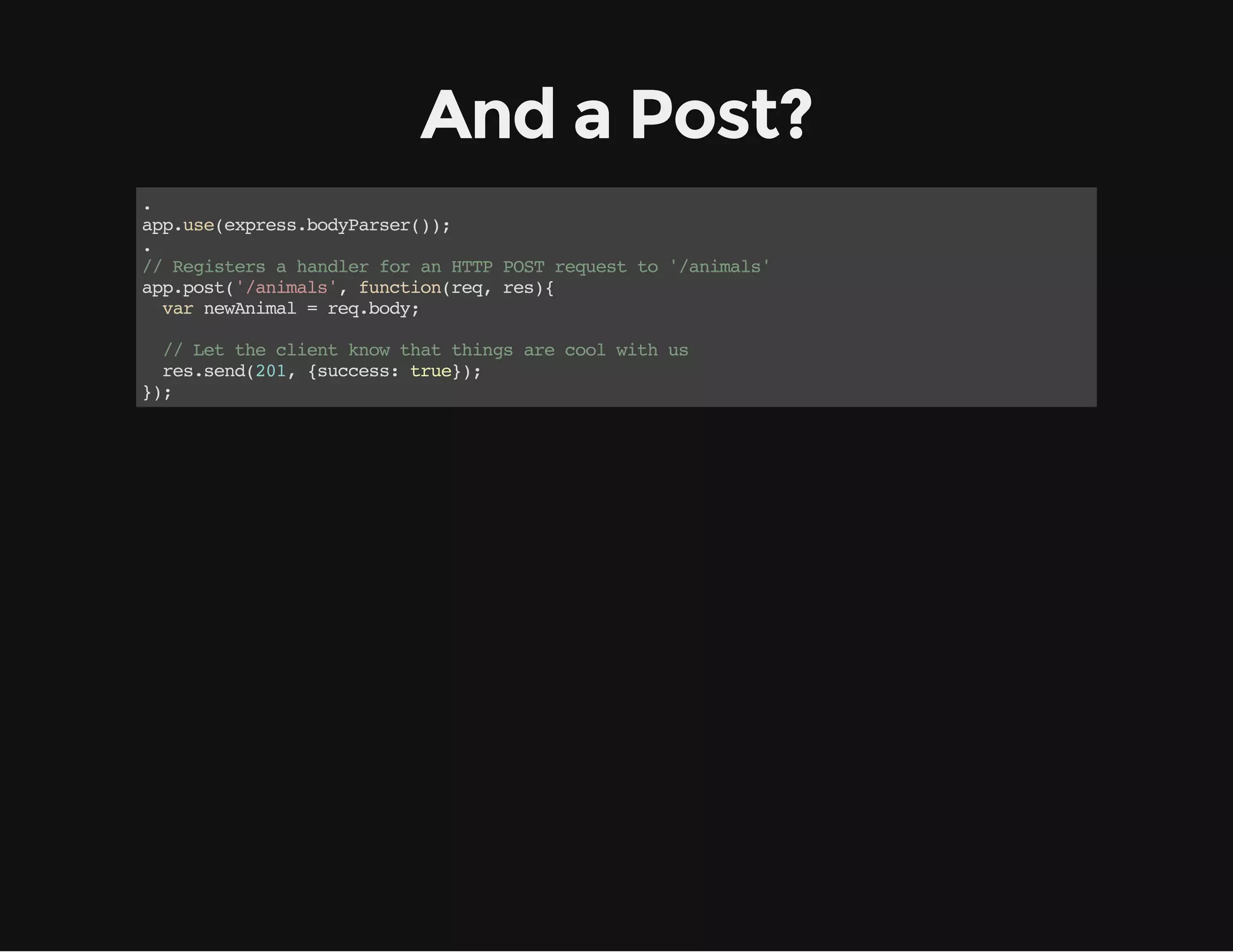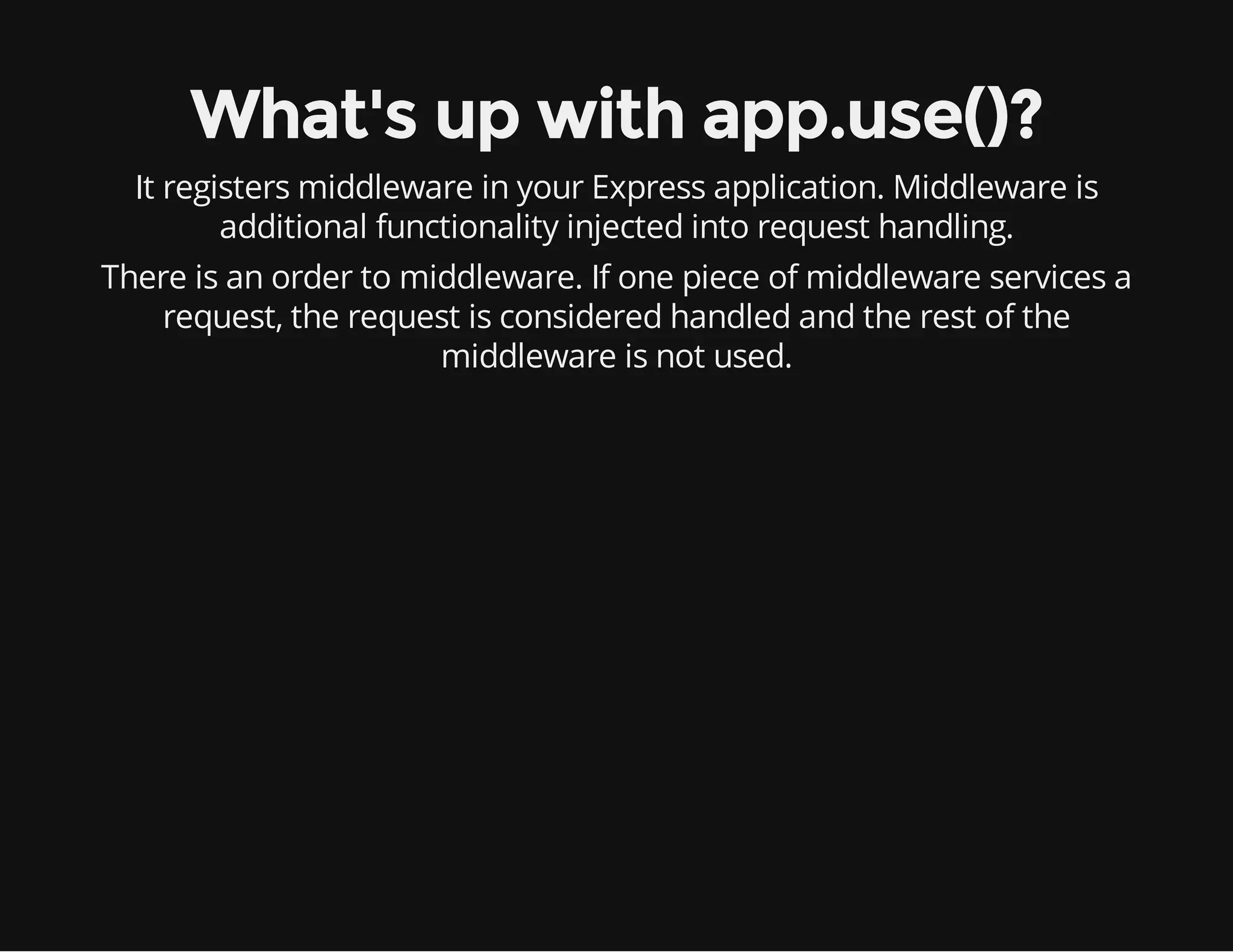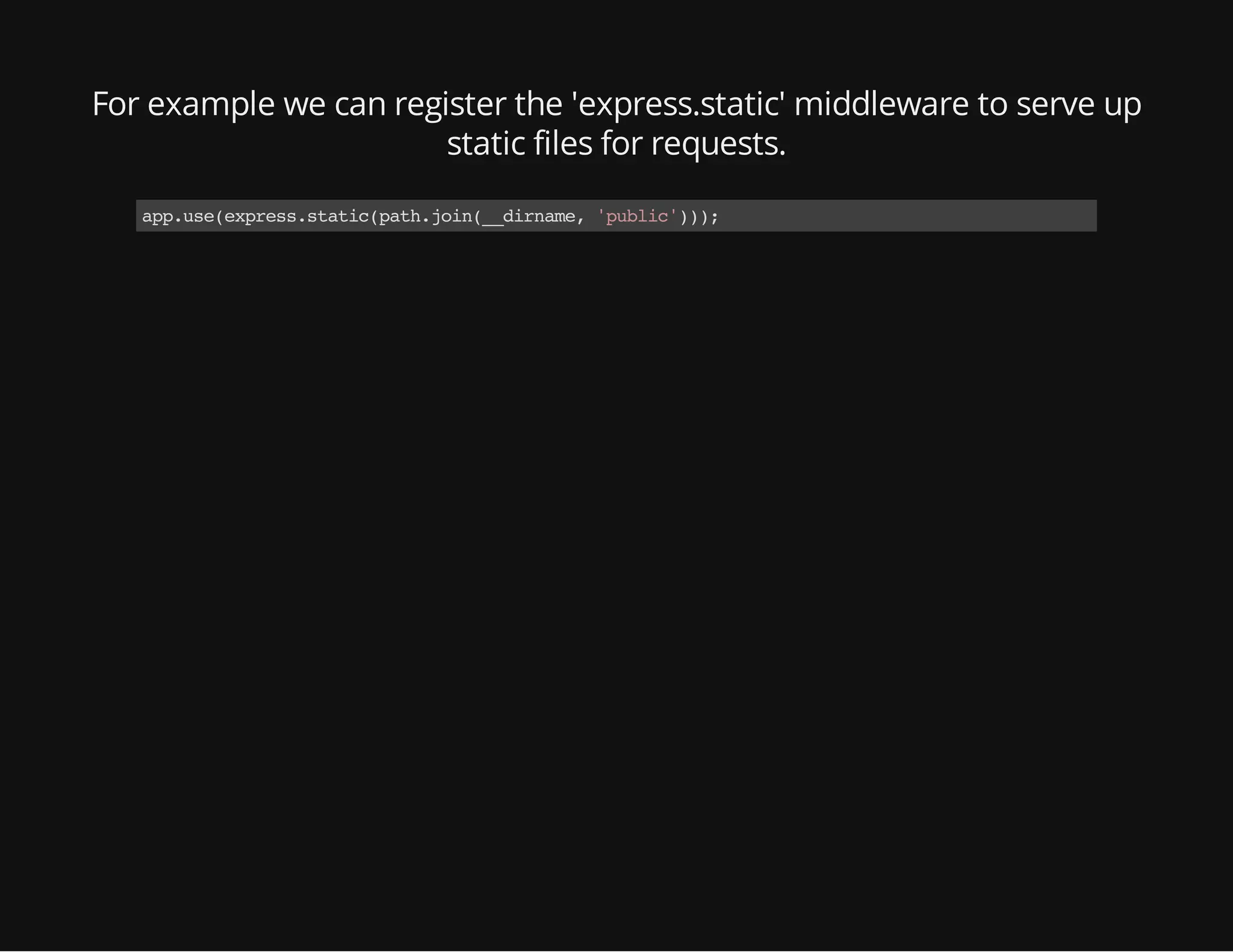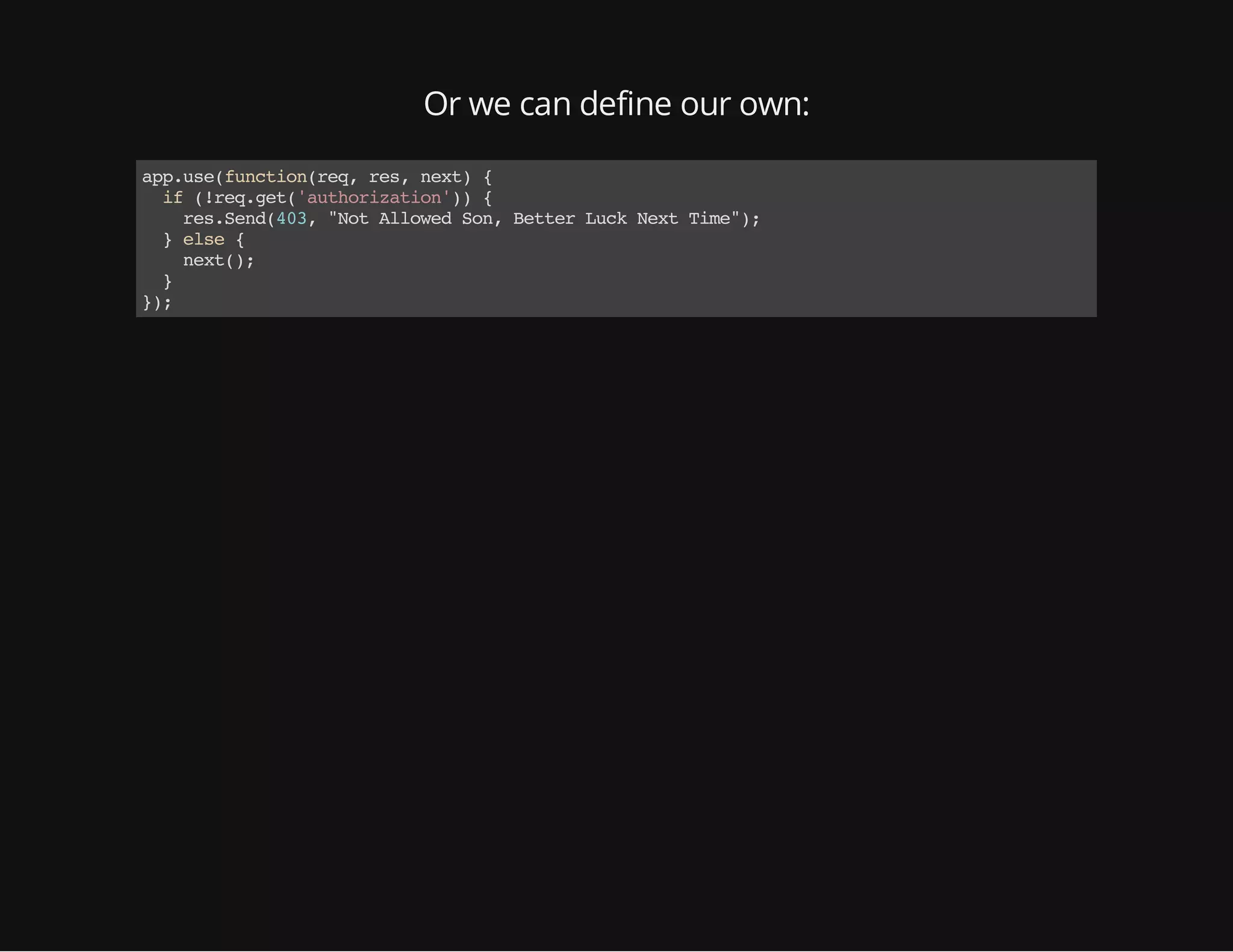This document provides an introduction to Express, a web application framework for Node.js. It demonstrates how to quickly generate an Express app, explain its default structure and files, and shows examples of serving static files, using views, and defining routes and APIs to handle requests. Key aspects covered include using middleware like the body parser and static file serving, as well as rendering views and sending JSON responses.

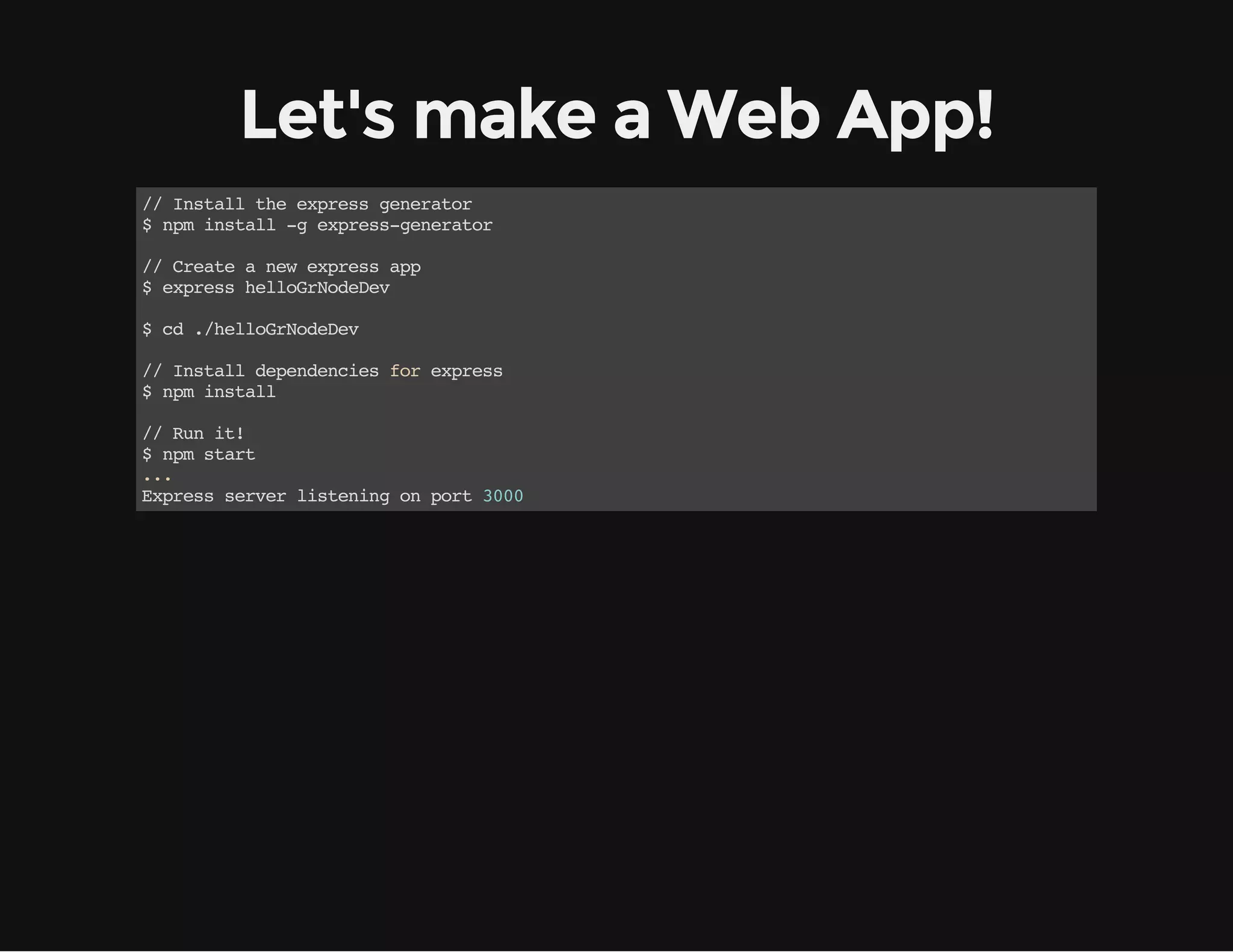

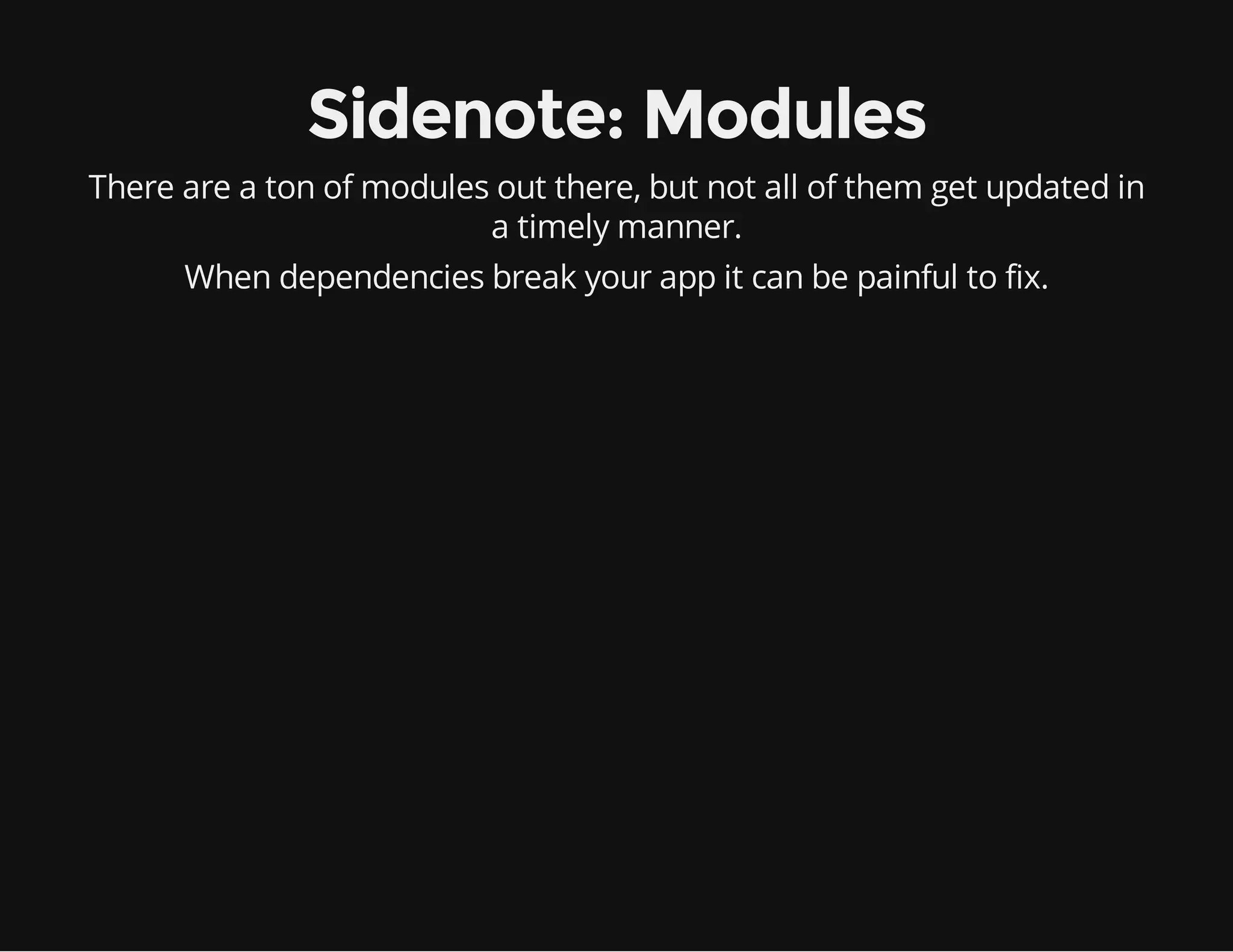
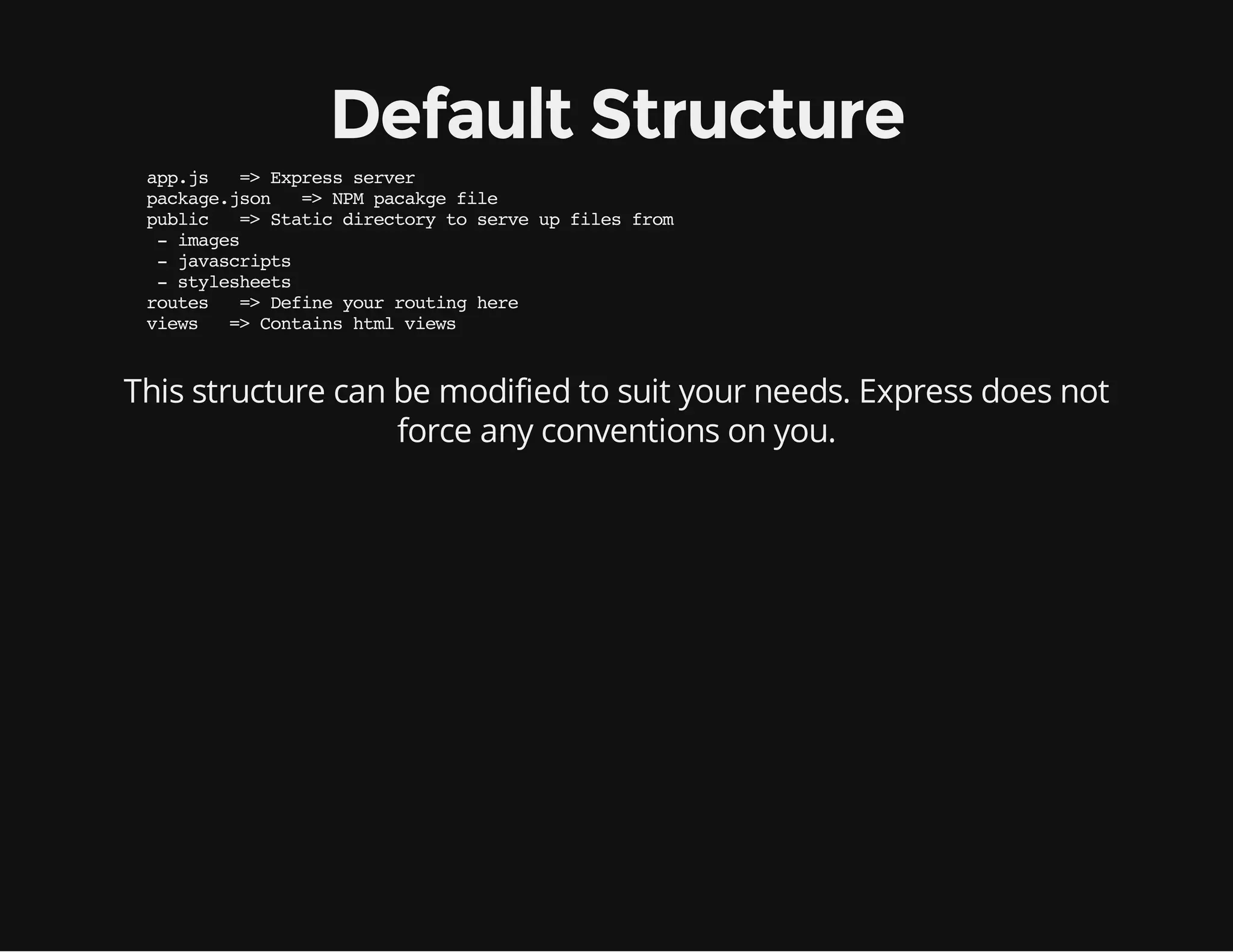
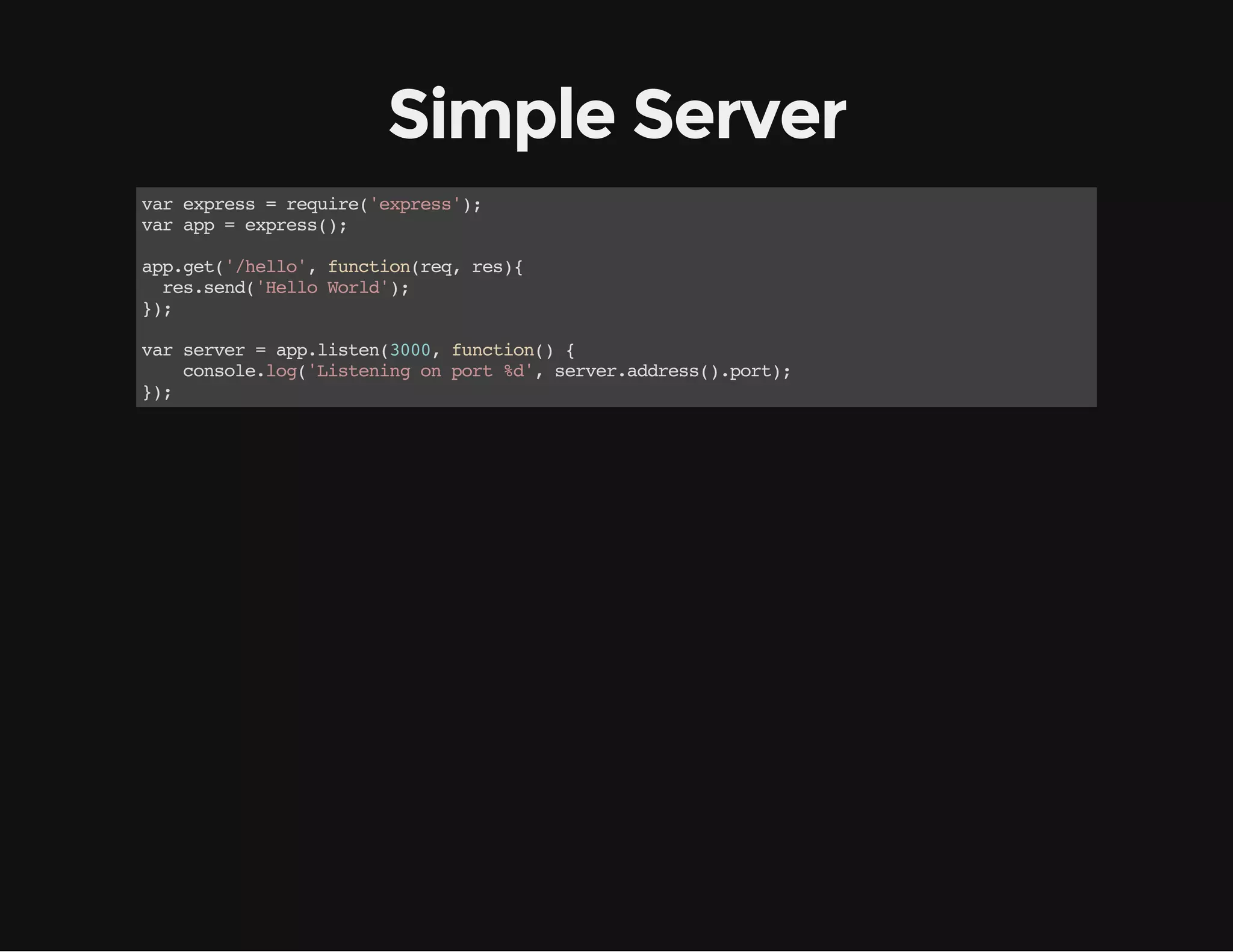
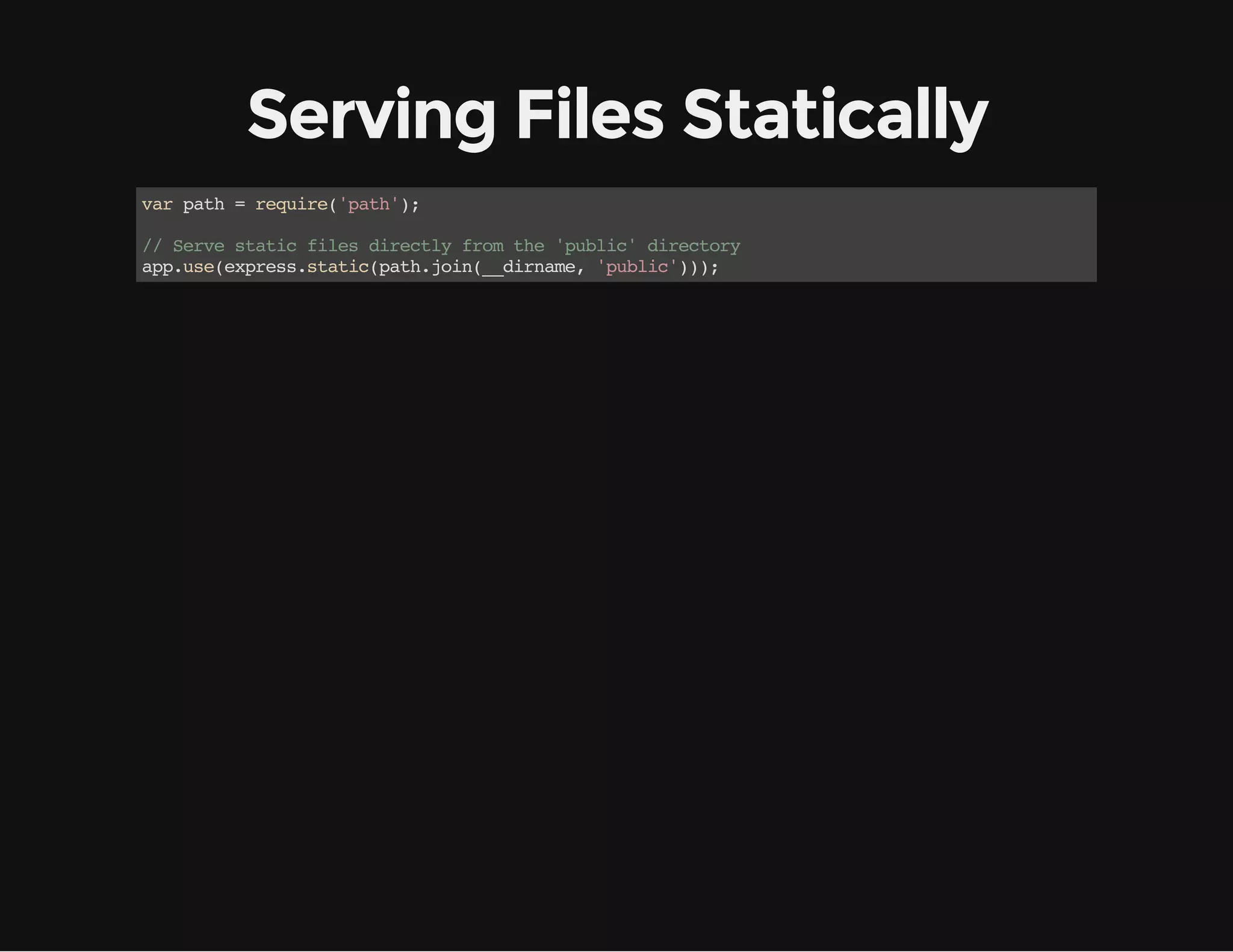
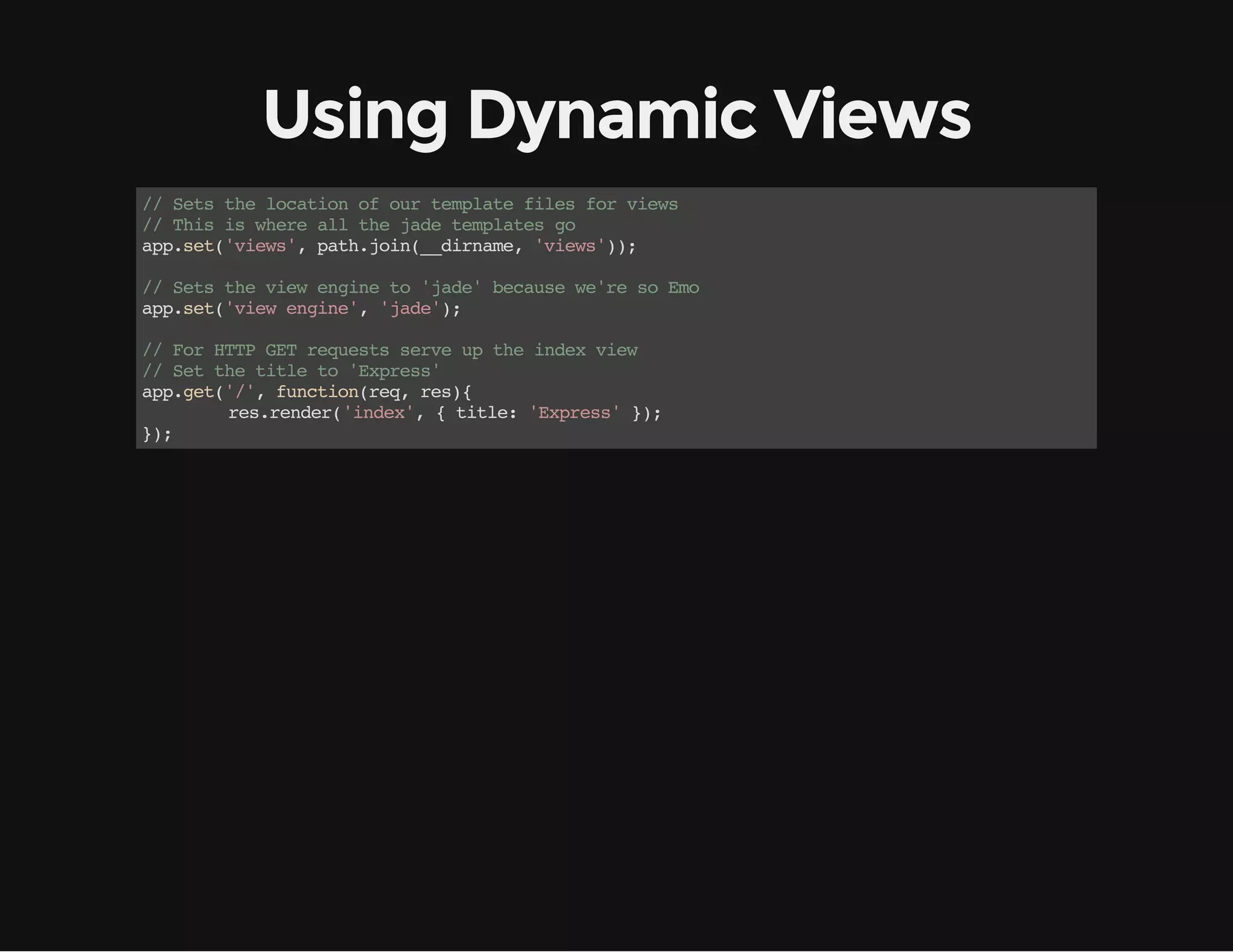
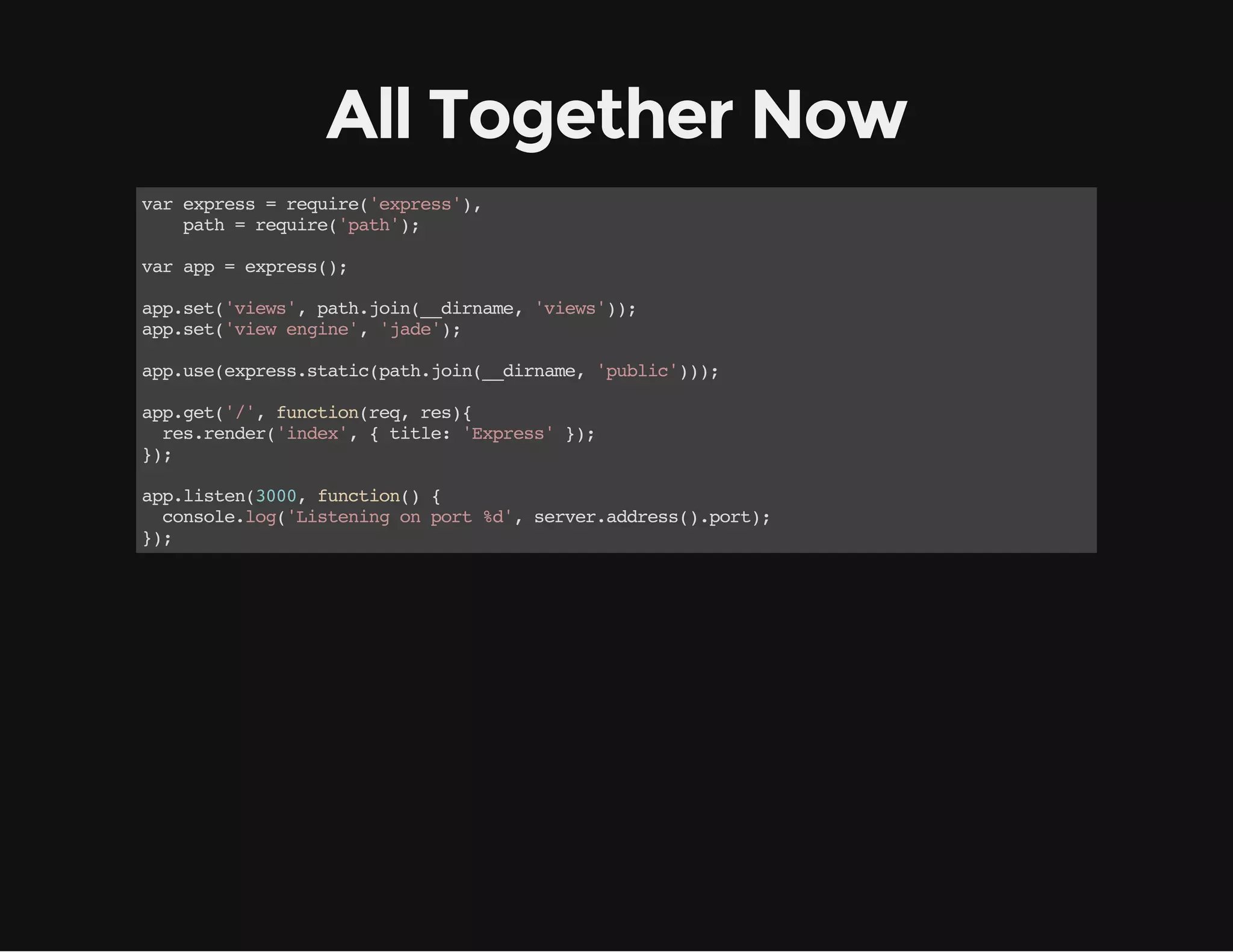
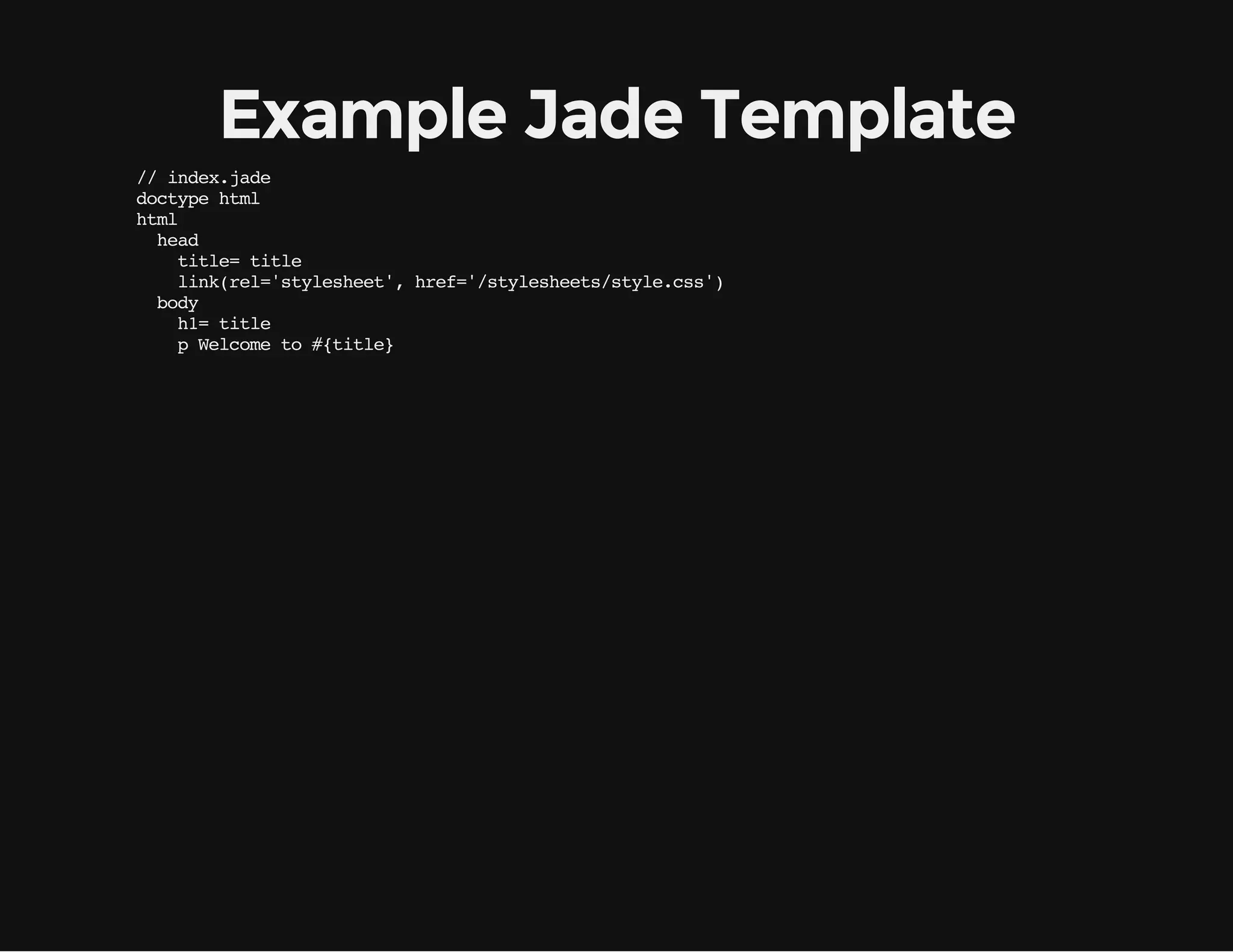
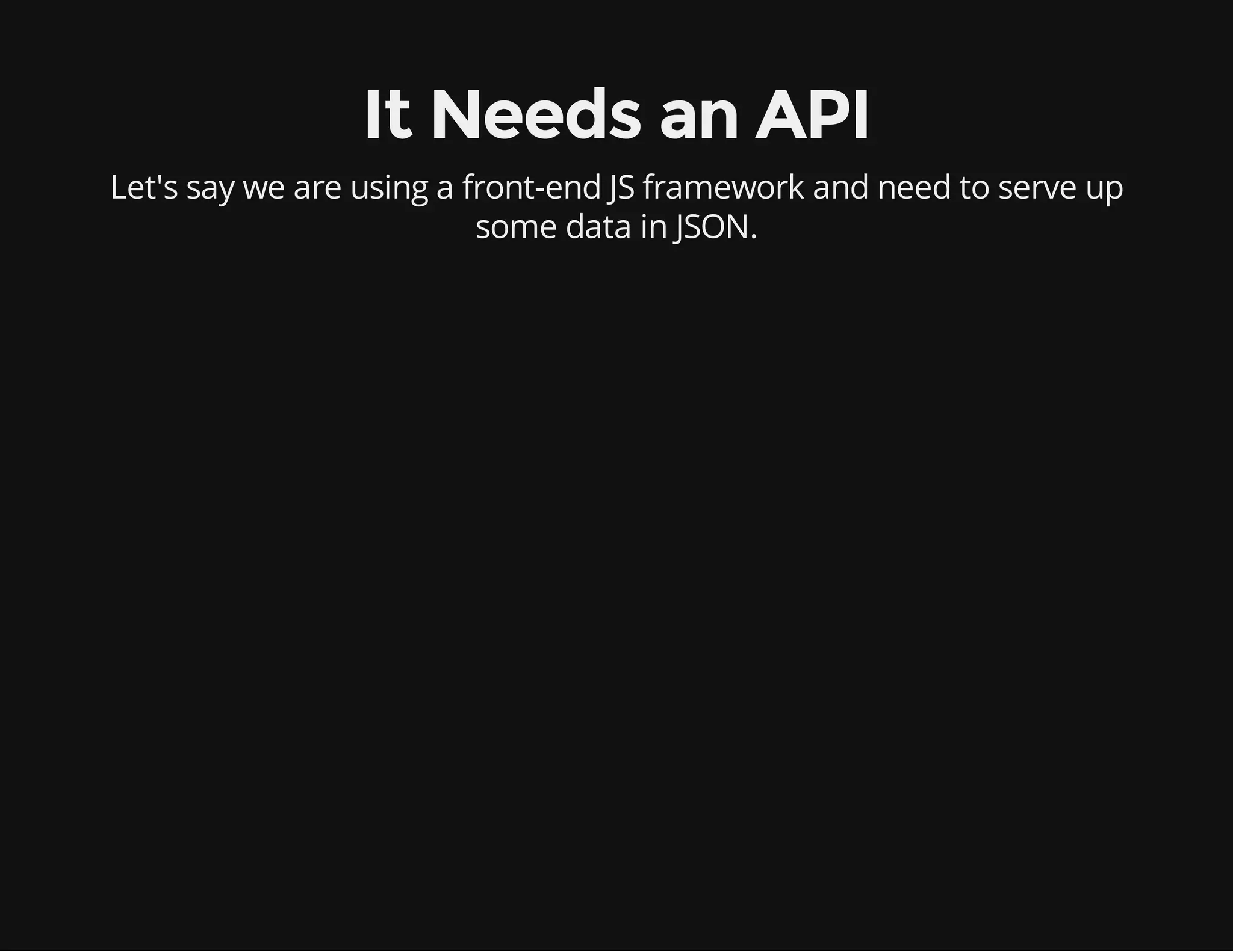
![Shut the Front Door, That Easy? //RegistersahandlerforanHTTPGETrequestto'/animals' app.get('/animals',function(req,res){ varanimals=[ {name:'SharkOwl'}, {name:'Liger'}, {name:'Zebroid'} ]; //Justsendthearrayasaresponse res.send(animals); });](https://image.slidesharecdn.com/intrototheexpresswebframework-140807205156-phpapp01/75/Intro-to-the-Express-Web-Framework-12-2048.jpg)
